Films with theme "Documentary films about health care", sorted by revenue
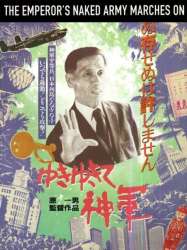 , 2h2
, 2h2Directed by Kazuo Hara
Genres War, Documentary
Themes Seafaring films, Transport films, Documentary films about war, Documentary films about historical events, Documentaire sur une personnalité, Documentary films about health care, Political films, Documentary films about World War II
Though Okuzaki ultimately holds Emperor Hirohito accountable for all the suffering of the war, ("I hate irresponsible people...the most cowardly man in Japan, is the Emperor Hirohito"), he painstakingly tracks down former soldiers and officers, coaxing them into telling him about the deaths, often abusing them verbally and at times physically in the process (at one point, Okuzaki states that "violence is my forte"). The people he talks to give different accounts of what transpired almost 40 years earlier, some saying that those killed were executed for desertion after the war was already over, while others state that they were shot for cannibalizing New Guinea indigenous people.

You Don't Have to Die (1988)
Directed by Bill Guttentag, Malcolm Clarke
Origin USA
Genres Documentary
Themes Films about children, Medical-themed films, Documentaire sur une personnalité, Documentary films about health care, Films about cancer
Un jeune garçon se bat avec succès contre le cancer, et aide d'autres enfants à surmonter leurs peurs.
 , 1h19
, 1h19Directed by Rob Epstein, Jeffrey Friedman
Origin USA
Genres Documentary, Historical
Themes Medical-themed films, Films about sexuality, LGBT-related films, Documentaire sur l'homosexualité, Documentary films about health care, LGBT-related films, HIV/AIDS in film, LGBT-related film
Actors Dustin Hoffman, Rock Hudson, Larry Kramer, Eddie Murphy, Ronald Reagan, Elizabeth Taylor
Ce documentaire raconte le coût humain et social lié au SIDA.
 , 42minutes
, 42minutesDirected by Bill Guttentag
Origin USA
Genres Documentary
Themes Medical-themed films, Films about drugs, Documentary films about law, Documentary films about health care
Actors Joe Mantegna

Tongues Untied (1989)
, 55minutesDirected by Marlon Riggs
Origin USA
Genres Documentary
Themes Medical-themed films, Films about sexuality, LGBT-related films, Documentaire sur l'homosexualité, Documentary films about health care, LGBT-related films, HIV/AIDS in film, LGBT-related film
Actors Marlon Riggs, Michael Bell, Eddie Murphy
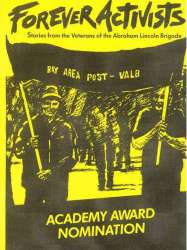 , 1h
, 1hOrigin USA
Genres Documentary
Themes Films about religion, Documentary films about war, Documentary films about historical events, Documentaire sur une personnalité, Documentary films about religion, Documentary films about health care, Political films, Films about Jews and Judaism

Positive (1990)
, 1hDirected by Rosa von Praunheim
Genres Documentary
Themes Medical-themed films, Films about sexuality, LGBT-related films, Documentaire sur l'homosexualité, Documentary films about health care, LGBT-related films, HIV/AIDS in film, LGBT-related film
Actors Larry Kramer, Rosa von Praunheim, Ronald Reagan
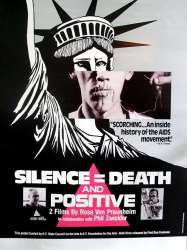
Silence = Death (1990)
, 1hDirected by Rosa von Praunheim
Origin USA
Genres Documentary
Themes Medical-themed films, Films about sexuality, LGBT-related films, Documentaire sur l'homosexualité, Documentary films about health care, Documentary films about cities, LGBT-related films, HIV/AIDS in film, LGBT-related film
Actors Paul L. Smith, Rosa von Praunheim
This film explores the reactions and response of New York City's artistic community to the ravages of the AIDS epidemic and other issues of homosexuality. Activist interview include representatives from the many arts organizations that have alerted the public to the crisis through performance art, music, theater and literature. Even with the gentler voices, the film’s undercurrent is an angry demand for action and recognition.

Diana's Hair Ego (1991)
, 29minutesDirected by Ellen Spiro
Genres Documentary
Themes Medical-themed films, Documentary films about health care, HIV/AIDS in film
 , 1h17
, 1h17Origin USA
Genres Documentary
Themes Medical-themed films, Films about sexuality, LGBT-related films, Documentaire sur l'homosexualité, Documentaire sur une personnalité, Documentary films about health care, Films about psychiatry, LGBT-related films, LGBT-related film
Actors Patrick Stewart
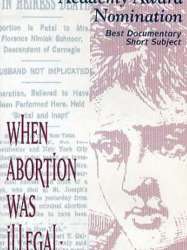 , 28minutes
, 28minutesDirected by Dorothy Fadiman
Origin USA
Genres Documentary
Themes Pregnancy films, Films about sexuality, Documentary films about historical events, Documentaire sur une personnalité, Documentary films about health care
 , 45minutes
, 45minutesOrigin Canada
Genres Documentary
Themes Medical-themed films, Documentaire sur une personnalité, Documentary films about health care, HIV/AIDS in film
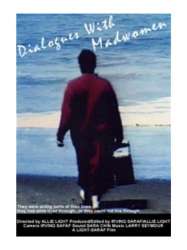
Dialogues with Madwomen (1994)
, 1h30Origin USA
Genres Documentary
Themes Medical-themed films, Documentaire sur une personnalité, Documentary films about health care, Films about psychiatry, Films about disabilities
In Dialogues with Madwomen, filmmakers Allie Light and Irving Saraf have seven "madwomen" — including Light herself — into telling their stories. Using a mixture of home movies, archival footage of psychiatric wards, re-enactments, and interviews with their subjects, Light and Saraf have created a complex, moving portrait of women in whom depression, schizophrenia, and multiple personalities coexist with powerful, sometimes inspired levels of creativity.

ChickenHawk (1994)
, 55minutesOrigin USA
Genres Documentary
Themes Films about children, Medical-themed films, Films about sexuality, LGBT-related films, Films about pedophilia, Documentary films about law, Documentaire sur l'homosexualité, Documentaire sur une personnalité, Documentary films about health care, Documentary films about child abuse, Films about psychiatry, Films about disabilities, Films about child abuse, LGBT-related films, LGBT-related film
The film describes the organization and its history. It presents a series of interviews with NAMBLA members who describe their feelings towards boys and justifications for such feelings.
 , 57minutes
, 57minutesDirected by Dorothy Fadiman
Origin USA
Genres Documentary
Themes Pregnancy films, Films about sexuality, Documentaire sur une personnalité, Documentary films about health care
Actors Dorothy Fadiman
 Connection
Connection